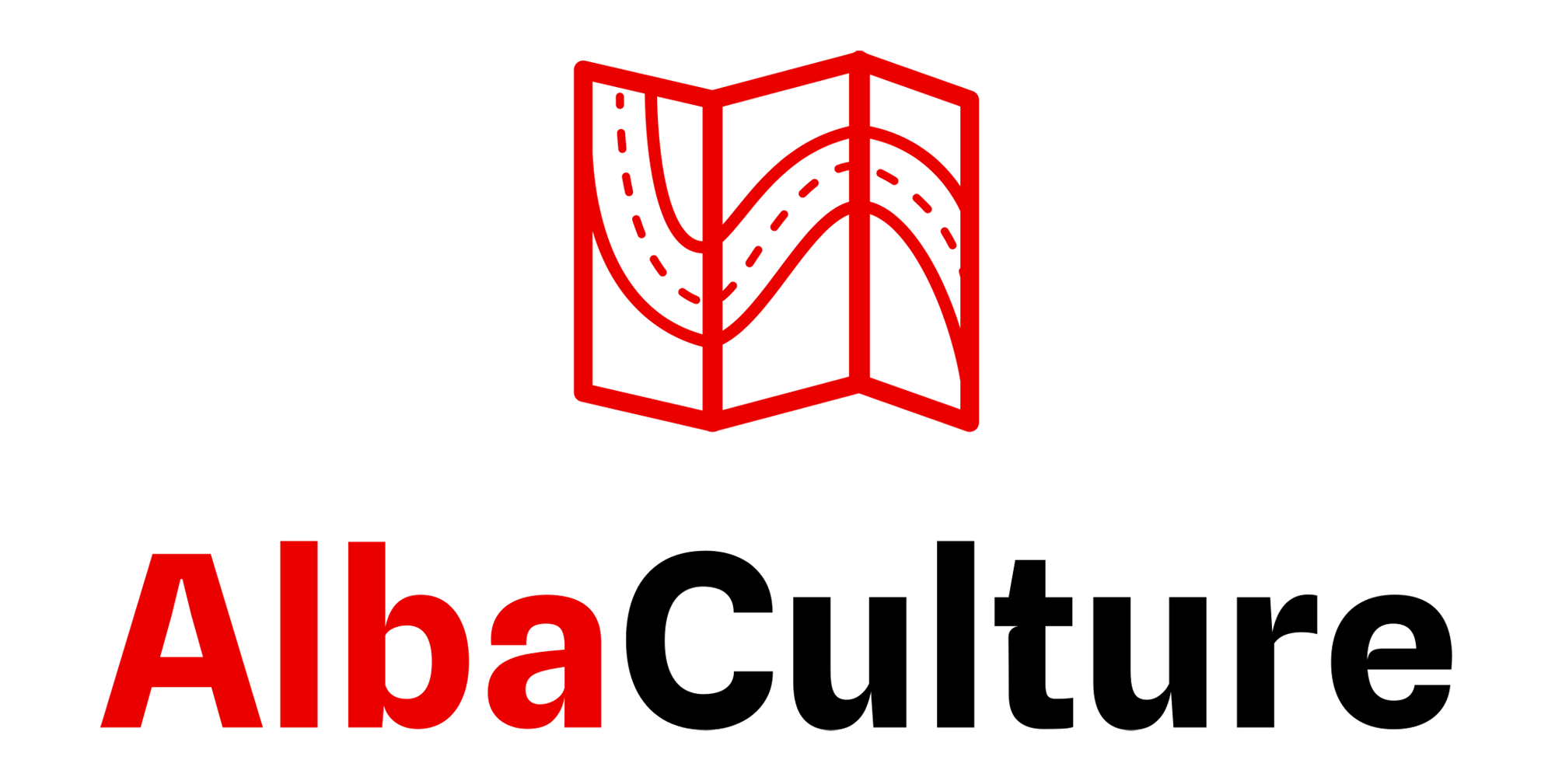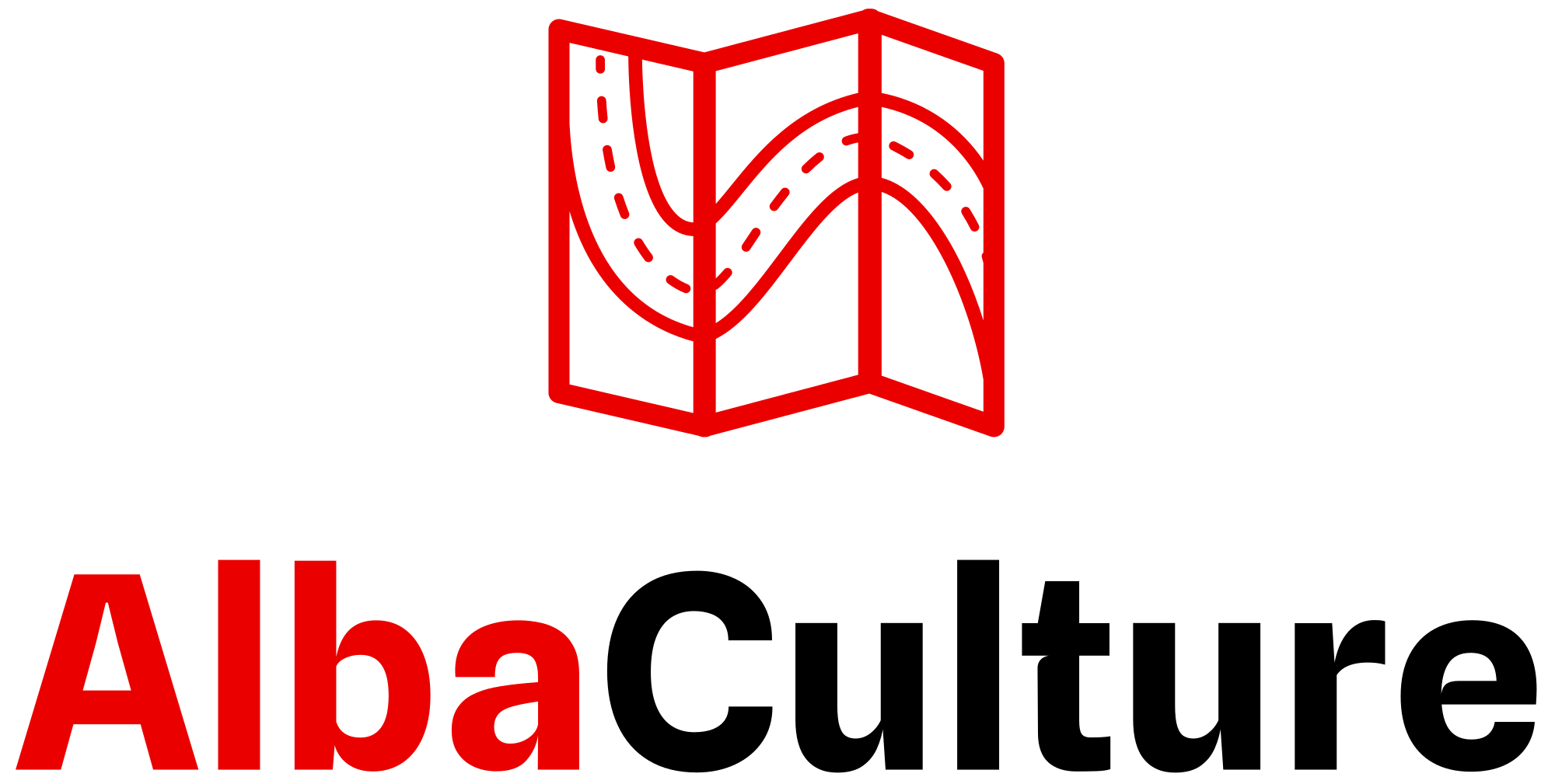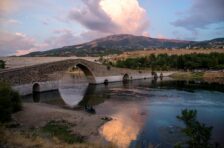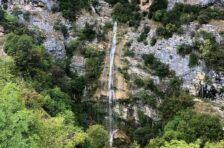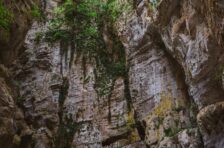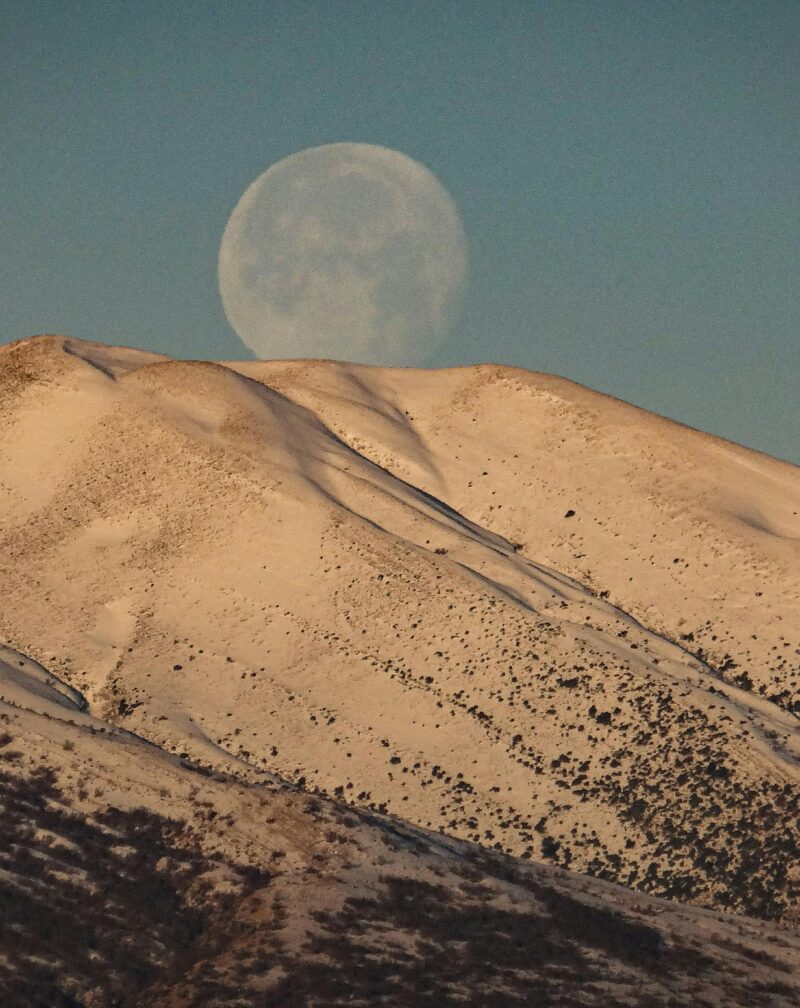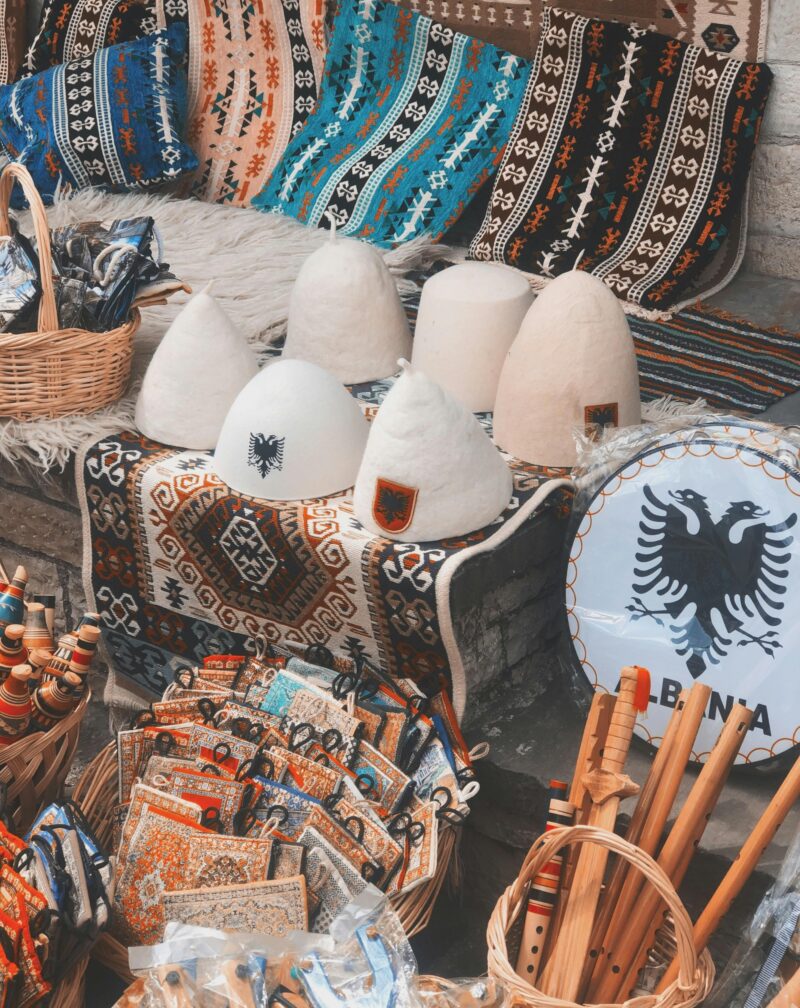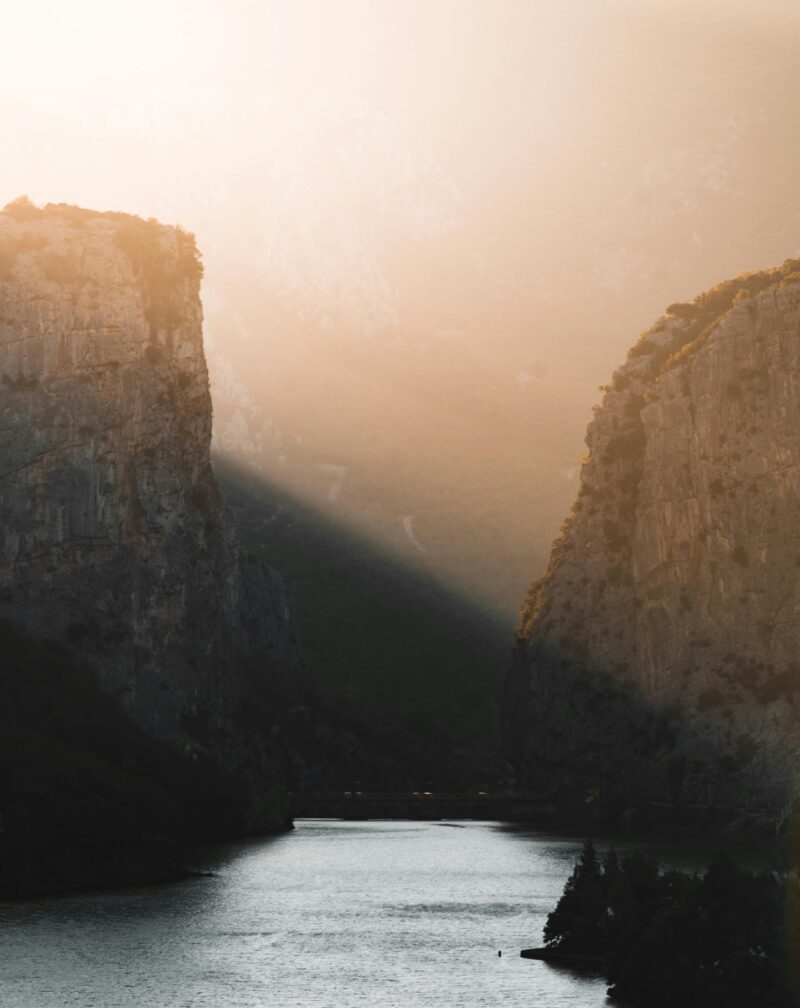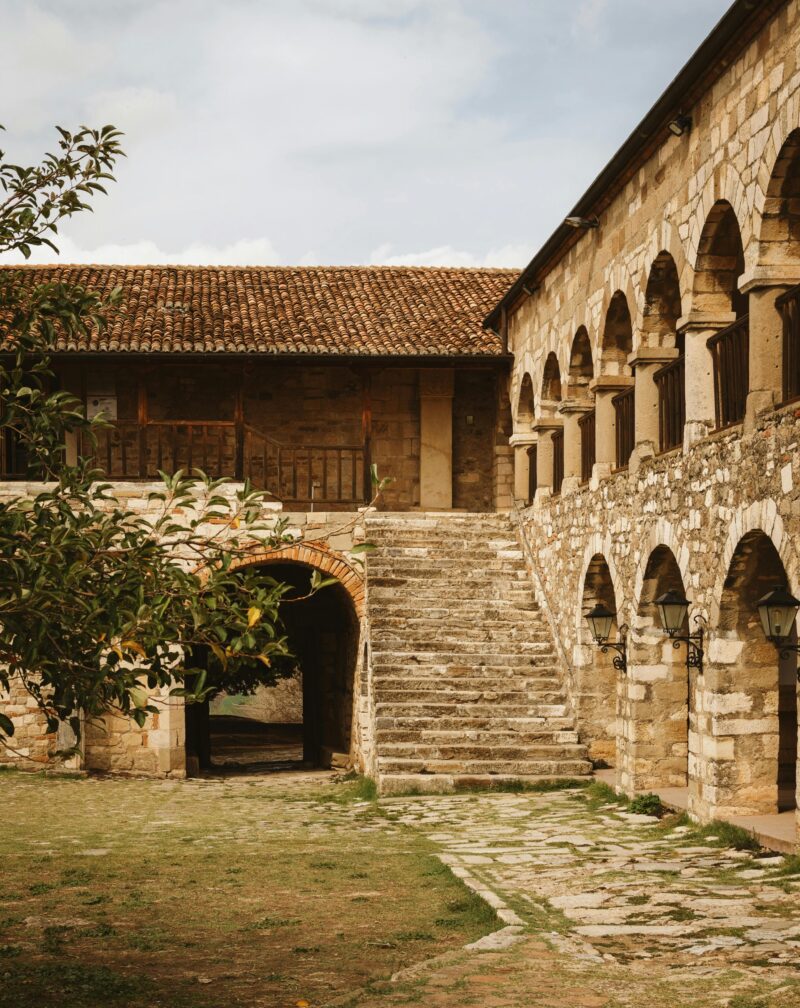Practical Advice Beyond the Basics
Some travel tips are universal—bring sunscreen, wear comfortable shoes, keep valuables secure. Albania-specific advice addresses the country’s particular characteristics and challenges.
Money Management
ATMs are everywhere in cities but sparse in rural areas. Before heading to villages or mountains, withdraw enough cash to last your stay.
Tirana to small mountain village for two days? Take at least 5,000-8,000 lek cash. You might not use it all but having it beats being stranded without money where no ATM exists.
Some ATMs run out of money, particularly in smaller towns. If one ATM doesn’t work, try another nearby. Banks usually have multiple machines.
Keep small bills. That 5,000 lek note is hard to break at roadside shops or small restaurants. Accumulate 200, 500, and 1,000 lek notes when you can.
Accommodation Booking
During summer (July-August) and around major festivals, book ahead—weeks or months in advance for popular spots like Ksamil or Dhërmi.
Off-season, you can often show up without reservations, though calling a day ahead ensures availability and sometimes gets better rates than online booking platforms.
Many family-run guesthouses aren’t on Booking.com or similar sites. They rely on word-of-mouth, signs on the street, or local Facebook groups. Asking locals or at previous accommodations often reveals these options.
When booking, confirm what’s included. Does the price include breakfast? Parking? Air conditioning? Standards vary, and what’s “obvious” in one country isn’t necessarily included in Albania.
Meal Timing
Restaurants operate later than you might expect for lunch and dinner. Lunch starts around 12:30-1:00 PM. Dinner rarely begins before 7:00 PM, with many Albanians eating at 8:00-9:00 PM.
Showing up at 6:00 PM for dinner might mean the kitchen isn’t ready yet, particularly in smaller establishments.
Breakfast usually runs 7:00-10:00 AM in hotels. Village guesthouses might be more flexible, preparing breakfast when you’re ready.
Cafes serve coffee and pastries earlier, if you need something before formal breakfast.
Restaurant Bills
Always check your bill before paying. Mistakes happen—items you didn’t order, wrong prices, math errors. Most are honest mistakes rather than scams but verify before paying.
If something seems wrong, politely question it. Restaurant staff usually correct errors without fuss.
Service charges are almost never automatically included. Tipping is your discretion, typically rounding up or adding 10% for good service.
Photography Etiquette
Always ask before photographing people directly. Point the camera at someone, make eye contact, gesture questioningly. Most will either agree or politely decline.
Children are particularly sensitive subjects. Always ask your parents first.
Military installations, border posts, and some government buildings prohibit photography. If you’re unsure, don’t photograph it.
Inside mosques and churches, check if photography is allowed. Some permit it, others don’t. Never photograph people during prayer services without explicit permission.
Shopping in Markets
Bargaining works at craft markets and bazaars for souvenirs. Start at 60-70% of the asking price, negotiate up to a mutually agreeable amount.
Food markets have fixed prices generally. Bargaining for tomatoes or cheese is inappropriate.
Best purchases include copper work, traditional textiles, local food products (honey, raki, olive oil), and hand-carved wooden items. These are distinctly Albanian and often high quality.
Language Shortcuts
Download Google Translate and Albanian language pack before your trip. Offline translation helps immensely when Wi-Fi isn’t available.
Learn these essential phrases:
- “Sa kushton?” (How much?)
- “Ku është…?” (Where is…?)
- “Faleminderit” (Thank you)
- “Mirëdita” (Good day/hello)
- “Po” (Yes) and “Jo” (No)
Written Albanian uses Latin alphabet, so you can sound out words even if you don’t understand them. This helps with menus, signs, and addresses.
Internet and Connectivity
Wi-Fi is common in hotels, restaurants, and cafes. Quality varies—sometimes fast, sometimes barely functional.
If you need reliable internet, buying a local SIM card with data plan is cheap (1,000-1,500 lek for tourist plans). Coverage is good in cities and along main roads, spotty in mountains.
WhatsApp is widely used by Albanians for messaging. Having it helps communicate with hotels, guides, or tour operators.
Dress Codes
Albania isn’t particularly conservative by European standards, but some basic guidelines help:
- Cover shoulders and knees for mosques and some churches
- Beach wear stays at beaches, not in town centers
- In villages, particularly in rural areas, modest dress draws less attention
- Tirana is fashion-conscious—people dress stylishly for going out
You won’t be turned away or harassed for inappropriate dress in most situations, but you’ll feel more comfortable and respectful following local norms.
Safety Precautions
Streets in old towns are uneven, cobblestoned, sometimes steep. Watch your footing, particularly after rain when stones get slippery.
Stray dogs exist but most are harmless. If dogs approach aggressively, they stop walking, face them, and back away slowly. Running triggers chase instinct.
Keep valuables in hotel safes when available. Don’t leave bags unattended in restaurants or on beaches.
Health Practicalities
Pharmacies are well-stocked with common medications. Pharmacists can recommend treatments for minor issues and often speak some English.
Tap water is usually safe in cities but tastes heavily chlorinated. Most people drink bottled water.
In rural areas, ask locals if tap water is safe. Mountain spring water is often excellent, but not all rural water sources are reliably clean.
Bring any prescription medications you need. Finding exact equivalents might be difficult.
Travel insurance covering medical evacuation makes sense. Albanian hospitals can handle routine issues, but serious medical situations might require transfer to Greece or beyond.
Dealing with Problems
If something goes seriously wrong—robbery, assault, accident—contact police (129 or 112). They might not speak English, but they’ll find someone who does or use translation.
Your embassy can help with lost passports, legal issues, or serious problems. They can’t bail you out financially or override Albanian law, but they provide support and guidance.
Most problems tourists face are minor—missed buses, miscommunications, overcharges. Remain calm, patient, and polite. Anger or aggression rarely improves situations.
Having local phone numbers (hotel, tour company, someone who speaks English and Albanian) helps resolve issues quickly.
The Mindset Adjustment
Things don’t always run on schedule. Buses leave when full, not necessarily when the timetable says. Restaurants might run out of menu items. Roads might be rougher than expected.
This frustrates people who need rigid schedules and guaranteed plans. It delights people who embrace flexibility and see unpredictability as adventure.
Adjust your expectations. Albania is improving rapidly, but it’s still a developing country in some ways. If you visit expecting Swiss efficiency, you’ll be disappointed. If you visit ready for flexibility, you’ll enjoy yourself much more.
The reward for accepting Albanian reality is experiencing a country that’s still genuinely itself, not fully transformed into a tourist product designed for foreign convenience.

